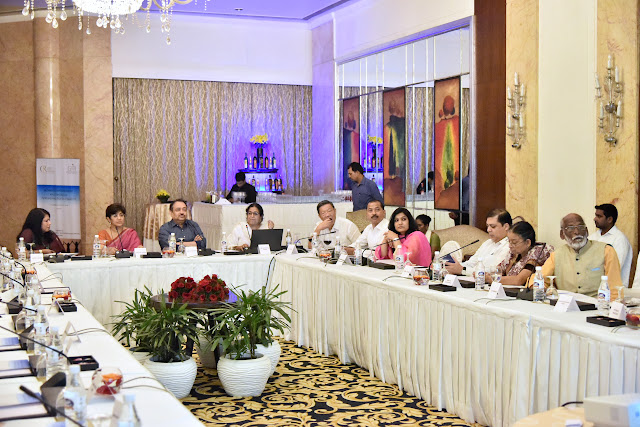 |
| Discussion in Progress |
It has become widely understood that gender
equality matters for development, economic growth and poverty reduction. Improving women’s education, employment and
health outcomes not only delivers benefits for women, but for whole communities
and economies. Despite progress, girls and women continue to be discriminated
in terms of access to proper health, education and employment. In every realm
of society, the discrimination and inequality is deeply embedded in various
forms and practices. Understanding the nature and extent of obstacles to gender
equality is critical to designing effective policies to promote equality
between men and women and consequently improving development outcomes.
To discuss the broad facts and debates
underlying women’s empowerment and social equality, and how Parliamentarians
can contribute in making the government policies and programmes successful, GPPI-CPR
organised an interactive discussion on “Women’s Empowerment and Obstacles in
Achieving Social Equality” on 4th August 2016. The discussion was
chaired by Ms. Vandana Chavan, Rajya Sabha MP - with a participation of 19 multi-party group of MPs from both Houses.
Dr Priya Nanda, Group Director, Social &
Economic Department, Asia Regional Office, International Center for Research on
Women’s (ICRW) and Dr. Aparajita Gogoi, Executive Director, Centre
for Catalyzing Change (formely CEDPA), were the speakers for this discussion.
The speakers presented broadly on how inequalities and discrimination is
prevalent in the Indian society. In this context, the presenters provided several
evaluations on policy and programs existing on women related issues in the
country. Dr. Aparajita Gogoi presented on three broad aspects - How Gender
and Heath Indicators are linked to each other, what are the main areas that we
need to prioritize and the role of Parliamentarians in supporting
changes in this context. Dr. Priya Nanda presented on the on the
important factors impacting adolescent girl, emerging needs, the context
of early marriage, child marriage, the vulnerabilities of intimate partner
violence etc.






